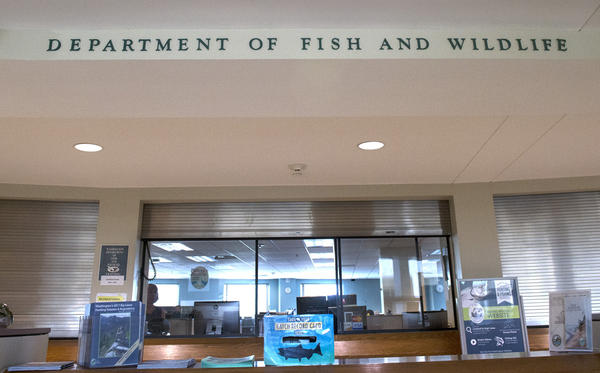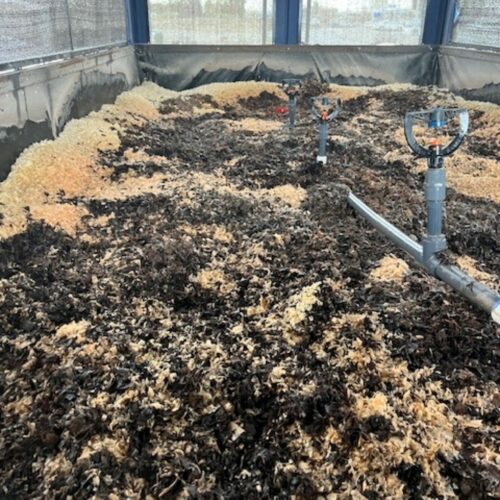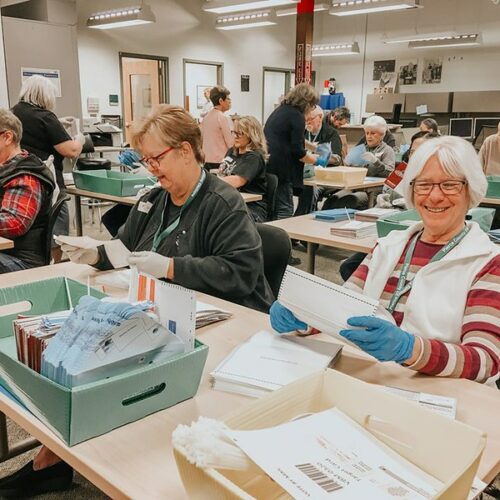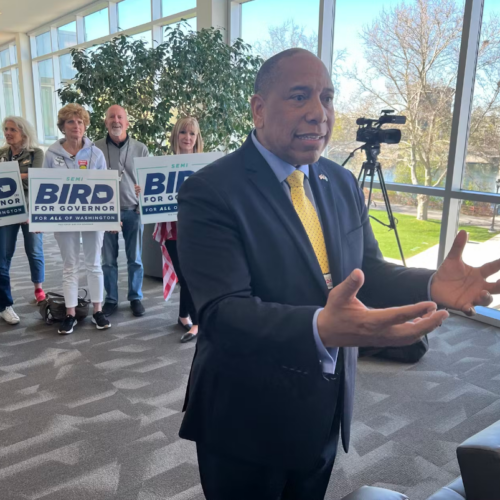
WDFW Director Orders Changes After Reports Of Sexualized Workplace
Listen
The director of Washington’s Department of Fish and Wildlife has announced a series of steps to address the workplace culture in the agency and encourage employees to come forward if they witness harassment or other misconduct.
The move follows reports of a sexualized workplace culture at a fish hatchery and among members of the agency’s executive management team.
In an all staff email dated September 1, Jim Unsworth wrote, “I’m sure we have all been disappointed and, frankly, embarrassed by recent news coverage of incidents that have no place in any work environment, and especially not at WDFW.”
Unsworth was referring to reports by public radio’s Northwest News Network and The News Tribune of Tacoma that revealed the details of two outside investigations into workplace culture at Fish and Wildlife.
“People are embarrassed,” Unsworth reiterated in an interview. He added, “I think we can do better so that’s what we’re going to do.”
Changing the culture at WDFW
The first investigation, in 2015, found a sexually-charged culture that one employee described as “a pattern of behavior that was not hidden” within the top ranks of the agency. That investigation followed the alleged rape of a Fish and Wildlife employeeby a co-worker after an agency Christmas party in 2014. A criminal trial is scheduled for later this year.
The second investigation, completed in June of this year, found an “extremely sexualized culture” at the Wells fish hatchery on the Columbia River. One woman who worked at the hatchery told investigators she sought a seasonal job elsewhere to escape the “constant, daily sexual banter.”
The top four employees at the hatchery were fired in August and last week the Douglas County Public Utility District, which owns the hatchery, announced that it plans to terminate a long-standing contract with Fish and Wildlife to operate the hatchery.
In his email to staff, Unsworth announced a series of changes designed to address the agency’s culture and make staff more comfortable coming forward if they see or hear something inappropriate.
Those changes include:
- Enhanced sexual harassment and training
- Creation of a new Diversity Advisory Group
- Establishment of a women’s resource group
- Provide employees a confidential “channel” to raise concerns
“It’s clear from our own internal investigations that many WDFW staff members have not been comfortable raising these issues within their chain of command or existing human resources procedures,” Unsworth wrote in his memo to staff. “Whether our agency is just a reflection of society or has its own unique cultural issues, we must improve our performance in this area.”
Unsworth acknowledges the need to recruit and retain more women to the traditionally male-dominated agency. Currently less than a third of Fish and Wildlife’s 1,900 employees are women.
Since joining the agency in January 2015, Unsworth has sent out several messages regarding his expectations for staff conduct and emphasizing a “zero tolerance” policy for sexual harassment.
“However, a strong policy and swift responses are not enough,” Unsworth wrote in his all staff email. “Nor is it good enough to respond only when we hear about a potential incident of harassment or other misconduct.”
‘Something good out of something bad’
The steps Unsworth announced drew conditional praise from newly appointed Fish and Wildlife Commissioner Barbara Baker who was previously chief clerk of the Washington state House of Representatives.
“It’s important for management to make something good out of something bad and in this case perhaps that’s happening,” Baker said.
She added that the true test will be in the implementation of these changes and whether they result in an environment where employees feel empowered to report inappropriate behavior.
“We have a lot of work to do, but I’m very heartened that the top management of this agency has chosen to take it on,” Baker said.
State Sen. Karen Keiser, the ranking Democrat on the Senate Commerce, Labor and Sports Committee, is also closely monitoring Fish and Wildlife’s response to workplace culture issues
“These steps by the department at this point are encouraging,” Keiser said after reviewing a copy of Unsworth’s email to staff.
Keiser has been considering legislation to give state employees additional options if they encounter a hostile or unprofessional workplace culture.
“I’ve heard concerns about bullying and harassment from other agencies over the years,” Keiser said. “Whether or not we actually need to have a new law, I don’t know.”
This story was reported in collaboration with Walker Orenstein of The News Tribune and The Olympian.
9(MDAyOTk4OTc0MDEyNzcxNDIzMTZjM2E3Zg004))
Related Stories:

Worms eating airport deicer fluid could be greener approach to airline waste
The Tri-Cities Airport in Pasco is piloting a new program that could lead the country in cleanly disposing of deicing wastewater using worms. (Credit: BioFiltro) Listen (Runtime 0:57) Read To… Continue Reading Worms eating airport deicer fluid could be greener approach to airline waste

AMBER Alert canceled for Tri-Cities boy, double murder suspect self-inflicts gunshot after police pursuit
Updated at 4 p.m.: The manhunt for Elias Huizar is over. The missing boy was not harmed, according to police. Investigators say Huizar shot himself after a police pursuit in… Continue Reading AMBER Alert canceled for Tri-Cities boy, double murder suspect self-inflicts gunshot after police pursuit

Rural Alzheimer’s, dementia patients face disparities in access to care
New research shows that people with Alzheimer’s disease and related dementias who live in rural areas often have trouble seeing a neurologist.
Continue Reading Rural Alzheimer’s, dementia patients face disparities in access to care












